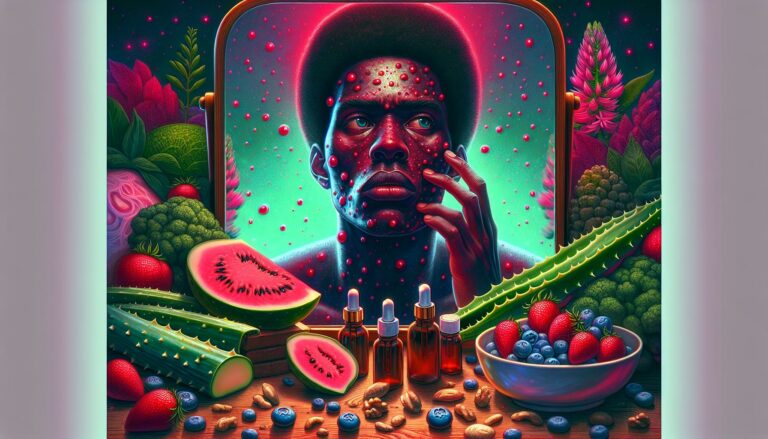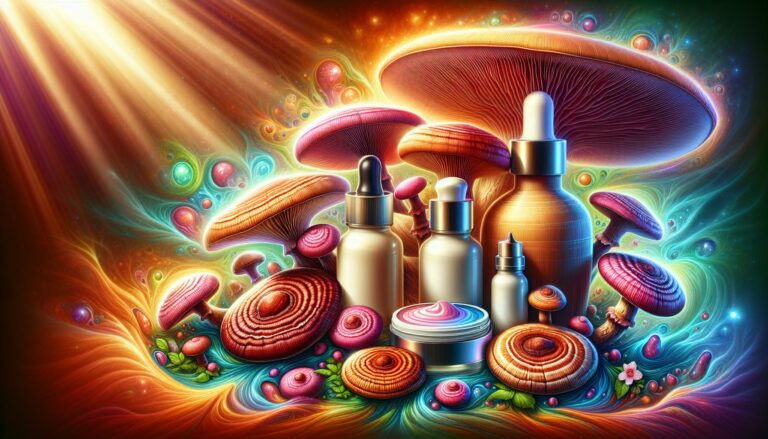Does Soy Cause Acne?
Navigating the world of skincare and diet can often feel like walking through a maze with no clear exit.
You’ve probably heard countless myths and truths about what causes acne, leaving you wondering where the truth lies. Soy, a staple in many diets, has recently come under scrutiny. Does it really contribute to those pesky breakouts?
With soy being a common ingredient in everything from your morning latte to your favorite snacks, it’s crucial to understand its effects on your skin.
Let’s dive in.

The Relationship Between Diet and Acne
When you’re battling acne, it’s natural to scrutinize everything you consume. Diet plays a pivotal role in skin health, and understanding this connection can empower you to make choices that support a clear complexion. While the link between diet and acne has been debated for years, recent studies have started to shed light on how certain foods may influence acne development.
Foods with a high glycemic index, such as white bread and sugary snacks, can cause blood sugar levels to spike. This spike leads to an increase in insulin, which can trigger a chain reaction promoting skin oil production and eventually, acne. Dairy products have also been associated with acne, albeit the evidence is more anecdotal than soy.
In contrast, foods rich in zinc, omega-3 fatty acids, and antioxidants are known to support skin health and reduce inflammation. Incorporating these nutrients into your diet might not only combat existing acne but also prevent future breakouts.
Understanding the intricate relationship between what you eat and your skin’s appearance is the first step toward managing acne effectively. While specific foods like soy are under scrutiny, it’s essential to look at your diet as a whole.
What Is Soy?
When diving into the dietary impacts on skin health, it’s essential to understand exactly what you’re consuming. Soy, a plant-based protein derived from soybeans, stands at the forefront of this investigation. It’s a versatile food, present in numerous products, from tofu and tempeh to soy milk and soy sauce. Beyond its popularity in vegetarian and vegan diets, soy serves as a critical source of protein for many across the globe.
The nutritional profile of soy is impressive, offering not just protein but also fiber, vitamins, and minerals. Key nutrients in soy include isoflavones, a class of phytoestrogens. These compounds mimic estrogen in the body but with a much weaker effect. This particular attribute of isoflavones has sparked discussions and studies into how soy consumption might influence various bodily functions, including skin health.
Understanding soy’s complex nature is crucial in evaluating its potential effects on conditions like acne. It’s not just about the protein; it’s about a whole spectrum of components that could play a role in your skin’s well-being.
Soy and Acne
When you’re navigating the complex world of dietary impacts on skin health, soy often gets a bad rap. However, it’s essential to separate fact from fiction when it comes to soy and acne. The myth that soy directly causes acne outbreaks lacks strong scientific backing. In reality, soy contains isoflavones, a type of phytoestrogen, which can mimic estrogen in the body but doesn’t necessarily worsen acne. In some cases, these compounds may even benefit your skin health.
Research points out that foods causing acne usually have a high glycemic index or are rich in dairy. Soy, however, falls into neither category. It’s a low-glycemic and dairy-free alternative that offers a bounty of vitamins and minerals beneficial for overall health. The presence of antioxidants, omega-3 fatty acids, and zinc in soy can support your skin’s integrity and combat inflammation, potentially reducing the likelihood of acne breakouts.
Understanding the factual relationship between your diet and skin health can empower you to make informed choices, steering clear of myths and embracing foods that truly benefit your skin. Soy, with its rich nutritional profile, deserves a fair assessment when considering diet’s impact on acne.
Soy and Hormonal Imbalance
When diving into the impact of soy on your skin, it’s crucial to understand its relationship with hormonal imbalance. Soy contains isoflavones, a type of phytoestrogen that mimics estrogen in the body. Your initial thought might be worry; however, the situation is more nuanced than it appears.
Isoflavones can both mimic and block estrogen at various sites in the body. This dual functionality means that soy can potentially balance hormones rather than disrupt them outright. For some, especially those with estrogen dominance, this could theoretically lead to improved skin health.
Research offers mixed insights. Some studies suggest that these phytoestrogens can help regulate hormonal imbalances, potentially mitigating acne caused by such fluctuations. Yet, the body’s response to isoflavones can vary greatly from person to person, making universal claims difficult.
Armed with this knowledge, you’re better positioned to understand how soy might affect your skin. Remember, individual responses can differ, underscoring the importance of paying attention to how your body reacts to dietary changes.
Genetics and Lifestyle
When exploring the question “Does soy cause acne?”, it’s crucial to not overlook the role of genetics and lifestyle choices. These elements play a significant part in your skin’s health and can either exacerbate or mitigate acne breakouts.
Genetics can predispose you to acne, making your skin more sensitive to dietary changes or hormonal fluctuations. If your family has a history of acne, it’s likely you might experience similar issues. Knowing this, adjusting your diet, including soy consumption, should be done with careful consideration of your unique genetic makeup.
Lifestyle choices also have a notable impact on skin health. Stress, sleep quality, and exercise all influence your body’s hormonal balance. High stress levels and poor sleep can increase cortisol production, often leading to more severe acne. Meanwhile, regular exercise can improve blood flow, helping to nourish skin cells and keep them healthy.
In terms of diet outside of soy, moderation and balance are key. Consuming a variety of foods rich in vitamins, minerals, and antioxidants supports overall health, including that of your skin. Remember, while soy and other specific foods might play a role in acne development for some, it’s the broader picture of genetics and lifestyle that often has the most significant effect.
Conclusion
Understanding the link between your diet and skin health is crucial in managing acne. While it’s tempting to zero in on specific foods like soy, it’s your overall diet and lifestyle that play pivotal roles. Soy, with its beneficial nutrients and isoflavones, might actually support skin health for many, thanks to its anti-inflammatory properties and potential to balance hormones.
However, it’s essential to listen to your body and observe how it responds to dietary changes. Remember, factors such as genetics, stress, and sleep also significantly impact acne development. So, before you cut out or add soy to your diet, consider the bigger picture and strive for a balanced, nutritious diet coupled with a healthy lifestyle for the best defense against acne.






